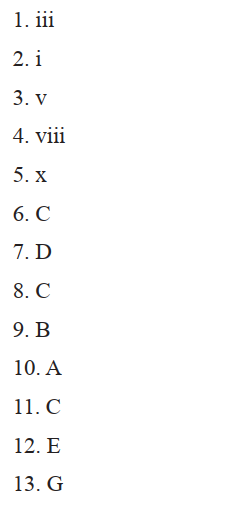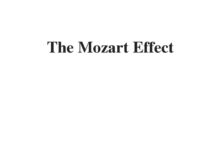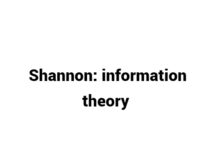Table of Contents
Passage
A We can find happiness right in our own home, our workplace, in school, in the company of our friends, etc. It is up to us to find the ways and means to achieve that happiness each of us seek and long for. However, it is essential to recognize that there is no one absolute way to achieve happiness. People may have different ideas with regard to the ways of achieving happiness. The following classifications are perceived by many people as sources of happiness: family and friends, wealth, position, educational achievement, fame.
B Happiness is a mental state of well-being characterized by positive or pleasant emotions ranging from contentment to intense joy. A variety of biological, psychological, religious, and philosophical approaches have striven to define happiness and identify its sources. Various research groups, including Positive psychology, endeavor to apply the scientific method to answer questions about what “happiness” is, and how we might attain it. Philosophers and religious thinkers often define happiness in terms of living a good life, or flourishing, rather than simply as an emotion. Happiness in this sense was used to translate the Greek Eudaimonia, and is still used in virtue ethics.Happiness economics suggests that measures of public happiness should be used to supplement more traditional economic measures when evaluating the success of public policy.
C The While level of physical healthiness is the biggest determinant of happiness, comparison of financial success with others of the same age group is the second largest source of happiness and unhappiness. Financially richer people tend to be happier than poorer people, according to sociological researcher Glenn Firebaugh, Pennsylvania State University, and graduate student Laura Tach, Harvard University. Their research is focused on whether the income effect on happiness results largely from the things money can buy (absolute income effect) or from comparing one’s income to the income of others (relative income effect). They present their research in a session paper, titled “Relative Income and Happiness: Are Americans on a Hedonic Treadmill?” at the American Sociological Association Centennial Annual Meeting on August 14.Firebaugh argues that, m evaluating their own incomes, individuals compare themselves to their peers of the same age. Therefore a person’s reported level of happiness depends on how his or her income compares to others in the same age group. Using comparison groups on the basis of age, the researchers find evidence of both relative and absolute effects, but relative income is more important than absolute income in determining the happiness of individuals in the United States. This may result in a self-indulgent treadmill, because incomes in the United States rise over most of the adult lifespan. They always dissatisfy with the salary. The survey indicates that the students studied in Harvard University expect to earn much more money than their classmates rather than care about the exact amount of the salary.
D The Minnesota Study of Twins Reared Apart (MISTRA) has a fascinating history, but eventually had 120 pairs of reared-apart twins plus four sets of reared-apart triplets-’the most extensive and intensive study of these rare experiments of (human) nature ever attempted’. In an early report of results it was found that, on most measurable psychological traits, monozygotic twins reared apart (MZA) were as similar as monozygotic twins reared together. Among persons of European ancestry, for psychological features that can be measured, heritabilities range from about 25 per cent to 80 per cent. Or, to put it more concretely , from one-fourth to fourfifths of the variation from person to person in such features as IQ, creativity and happiness, is associated with genetic differences between those persons. That indicates that besides the environments, genetic difference may also affect the happiness. Furthermore, neurobiological evidence shows that left and right frontal lobes play different roles in the emotion. Happiness is a type of emotion, a positive one. From the experiments, happiness and the left prefrontal lobe are combined together. The more active it is ,the more positive emotion you sense.

E At the outset of new millennium, a global research had a result that the people living the modem world were even more unhappy. Happiness is a mixture of positive emotions, ranging from a feeling of heavenly bliss or delight to a state of well-being and contentment. There are many ways to be happy; but with crises being on the rise these days, finding happiness can be a bit challenging. Despite of all the stresses associated with life, we still do our best to be happy—because being happy is the only way to keep us afloat. Happiness is considered a very important therapy, both physically and mentally. With it, we are inspired to accomplish whatever goals we want to achieve. It’s a strong drive that keeps us going and helps us live our life every single day. Spend time with individuals who are dear to you. There is nothing more joyful than to be with the people you love. During the weekends, try to schedule a fun trip for you and your partner, or one for your whole family. Just go somewhere else for a change and enjoy the change of scenery. Do something nice for others. Helping others is a very honorable way to find happiness. If your schedule is too tight for volunteer work, you can just donate a small sum of money or some old clothes or toys to charity. When you eat out, try to be a good tipper to the waiters or the valet who safely parked your car. All these simple things will not only make you happy, but other people as well. Start and end your day with a smile. Smiling is a very powerful gesture. There’s no need for words to describe how pleasant it is. If you have a lousy day, smile your way out of the office. When people smile back at you, it will uplift your mood and make you feel better. Spend some time with your friends. A close circle of friends is one of the most important souse of happiness.
Questions
Questions 1-5 Reading this passage has six paragraphs ,A-E Choosing the correct heading for paragraphs , A-E from the list of heading below. Write the appropriate number, i-x ,in boxes 1-5 on your answer sheet.
List of headings
i The definition of happiness
ii An increase in junk food consumption
iii The source of happiness
iv National dietary recommendations
v Happiness comes from relative comparisons of wealth
vi Research for twin brothers
vii Compare between happiness of male and female
viii The factors affect the happiness
ix Recommendation from the parents
x Happiness help to ease pressure for modern life
xi Students of Harvard University
1 Paragraph A
2 Paragraph B
3 Paragraph C
4 Paragraph D
5 Paragraph E
Questions 6-10 Choose the correct letter, A, B,C or D. Write the correct letter in boxes 6-10 on your answer sheet
6 Which source of happiness is not mentioned in this passage
A wife
B reputation
C diner
D status
7 Which is the most important factor regarding to happiness mentioned in this passage
A wealth
B holiday
C friend
D health
8 Which is not motioned in this passage for affect the happiness
A environment
B gene
C electricity
D frontal lobes
9 A research in the 21 st century indicate that
A always try to directly say no
B modern life makes people not happy
C female specifically feel unhappy
D medicine therapy helped to bring happiness
10 Which suggestion is not mentioned in last paragraph for achieving happiness
A consult a physician
B smile
C help others
D stay with friends
Questions 11-13 Complete each sentences with the correct ending, A-G,below. Write the correct letter A-G in boxes 36-40 on your answer sheet.
A encouraged the scientist to make further study
B expected to earn much money
C identified that environment is not sole factor affect happiness
D certify that people cannot control the happiness
E can cause more happiness when it is active
F indicated reared-apart triplets were useless for the research
G may need close circle of friends for achieving happiness
11 A study of reared-apart twins
12 The left prefrontal lobe of human
13 People living in modern city
Answers

Cambridge ielts 1-18 reading test solutions


